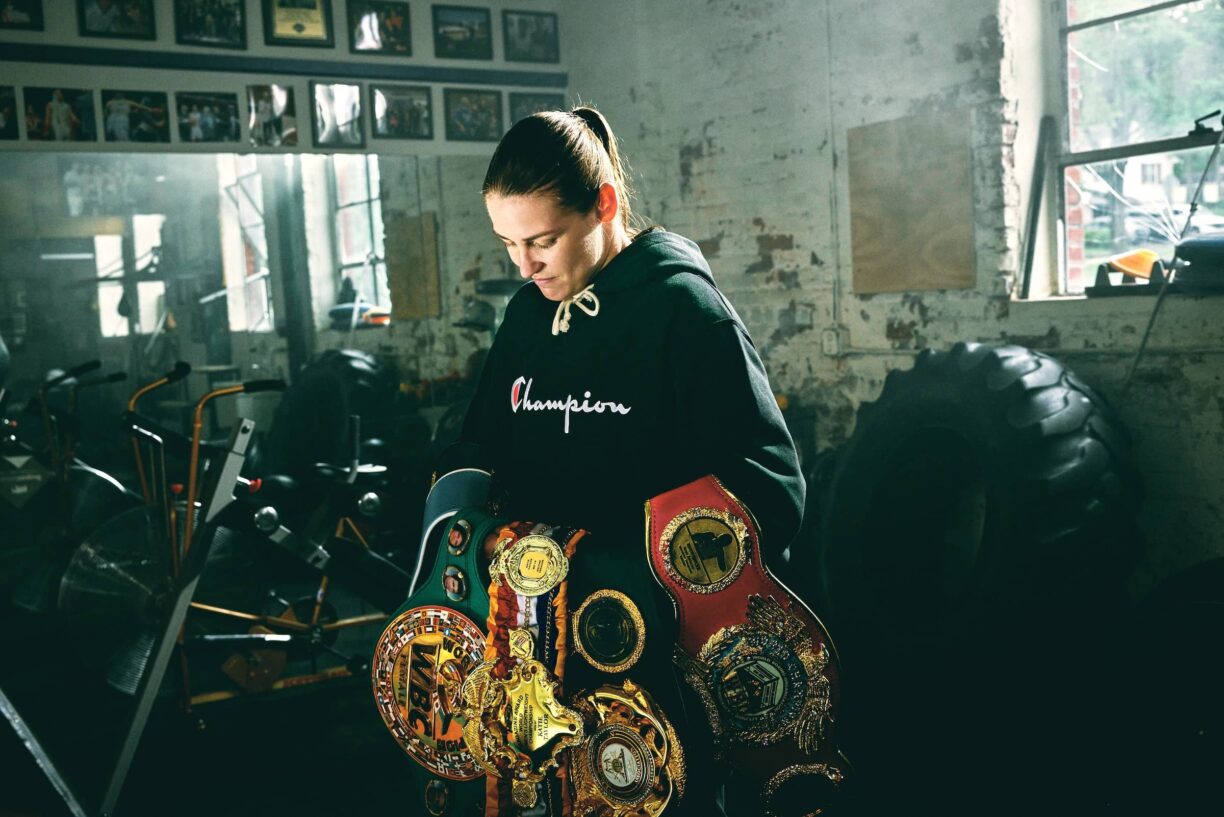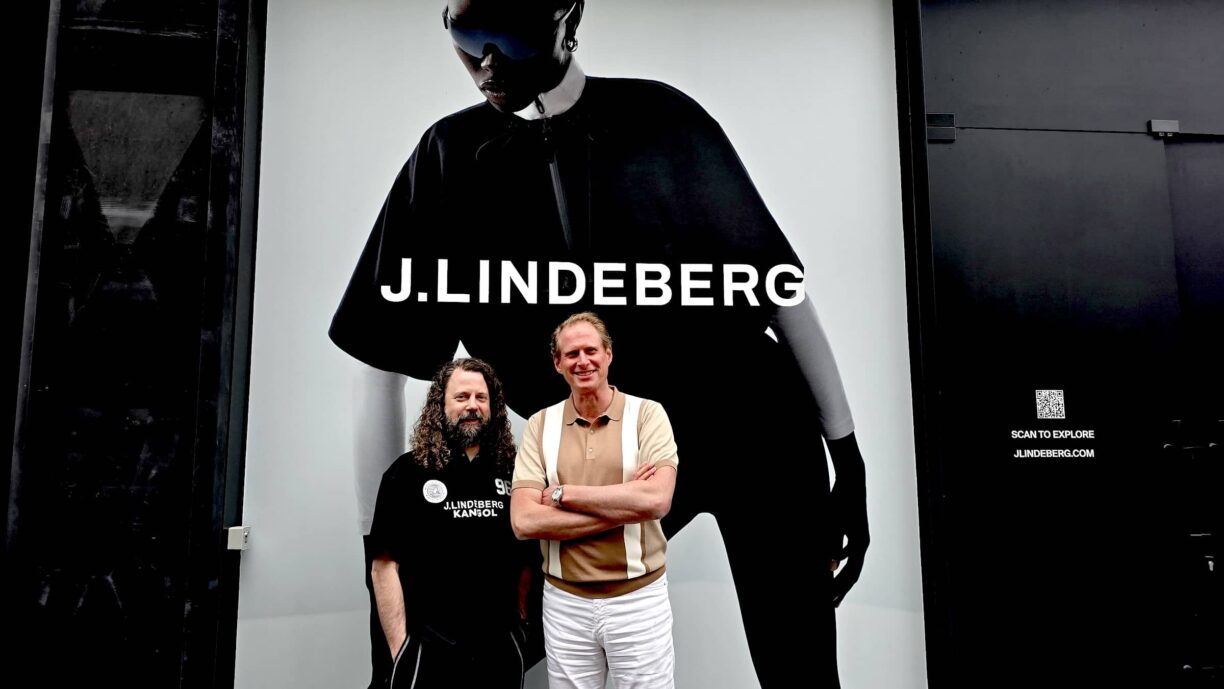How to Lose Weight Well has returned to Channel 4 and in this series, Dr Helen Lawal and Dr Javid Abdelmoneim ask members of the public to road test some of the most hyped-up and written about diets on the market today.
Dieters are divided into three categories; CRASHERS on short term diets, SHAPE SHIFTERS on four-week programmes and LIFE CHANGERS on six-week diet programmes that might change their lives for good.
For anyone who hasn’t seen the series before, how would you describe How to Lose Weight Well?
Dr Helen Lawal: HTLWW is a feel-good show that will leave you feeling motivated and inspired to lose weight and be healthier! In the show, our brave and motivated dieters road test a variety of different diets and Javid and I as presenters explore and test out new and emerging weight loss strategies.
Dr Javid Abdelmoneim: We ask members of the public to road test some of the most hyped-up and written about diets on the market today.
Dieters are divided into three categories; CRASHERS on short term diets, SHAPE SHIFTERS on four-week programmes and LIFE CHANGERS on six-week diet programmes that might change their lives for good.
It’s a fast-moving watch that sees pairs of friends/relatives/colleagues each take on a diet in each category. This provides some fun competition!
When you are deciding on what diet to give to the contributors do you consider their existing lifestyle or is it just a random selection?
Helen: Their existing lifestyle is considered, including their job, eating habits, cravings and their previous dieting successes and failures! These are just some of the factors that are important when approaching weight loss.
Dieting is quite a difficult thing to do – why do you think people tend to lose interest with diets over time?
Javid: Diet vs eating for life. I think many ‘diets’ ask people to change their normal eating habits in a way that is not sustainable.
For short term weight loss that might be fine but over time you need to learn how to eat for life. That’s a different ball game.
Helen: Losing weight is not easy and that’s because habits are hard to break, that includes eating habits.
Often the dieting approach encourages deprivation and this can be difficult to maintain in the long-term and it’s easy to slip back in to old habits.
That’s why it’s so important to consider lifestyle factors and address these too, including sleep, work, exercise, stress and alcohol.
Javid: Also, there are times in your life when you are motivated by different things. One might be motivated to lose weight for one’s wedding but this motivation disappears after the big day and bad habits creep back in.
If you’re like me then it’s hard! I love eating so much but I also know that I have type 2 diabetes, high cholesterol and high blood pressure in my family, so I have to stay on top of my waist size in order to keep those at bay.
That’s generally enough motivation for me…and the next beach holiday of course (whenever that may be). I say, find your motivation and grab hold of it in front of you everyday.
What are the most common mistakes people make when dieting?
Helen: Weight loss is not just about numbers, it’s about health and feeling good about yourself!
Three common mistakes people make are: Failing to address their relationship with food; Not setting realistic long term weight loss goals; and failing to appreciate that sleep, stress and exercise all have an impact on weight loss.
Javid: Making changes that are drastic and not suited to long term changes is a general mistake people make. Going hard and fast initially can be very motivating if you lose weight quickly but the food you’re taking in needs to be something you can stick to for the rest of your life once you achieve your weight goals.
What are some ways dieting and exercise can fit more easily into people’s lives?
Helen: Creating lots of small, easy habits and routines that fit in to your life and make you feel good is the best approach to take!
- Plan your meals for the week ahead and then do the food shop based on this plan- it takes the decisions out of it when you come home from work and are tired and hungry and don’t know what to eat, so you are less likely to make poor food choices if you have options you have already planned and prepared.
- Whenever you can, batch cook twice the amount and keep the extra in the fridge or freezer- that way, you always have a back-up and it saves loads of time.
- Stock up on frozen and tinned vegetables. They are nutritious, despite common misconceptions and still count towards your 5-a-day. They can often be cheaper and are so quick and easy as they don’t require any prep! My freezer faves are: spinach, peas, carrots, peppers, raspberries and strawberries! My store cupboard faves are kidney beans, lentils, tinned tomatoes and sweetcorn! And a couple of portions to a curry, stew, omelette or to accompany a meal and you’ll have clocked your 5-a-day before you know it!
- Exercise is a great way to maintain a healthy weight. Make exercise part of your life, e,g make your commute active, walking meeting at work, meeting friends and doing something physically active, spending your down time with family in the park, outdoors etc And remember even just 10 mins of brisk walking has health benefits. The health benefits of walking are massively underestimated! If it makes you feel warm, breath faster and raises your heart rate you’re on to a winner. With exercise, the key is to find something you enjoy that fits in to your lifestyle and gives you that endorphin boost so that you keep going back for more!
Javid: I think enjoyment and ease are key. Whatever you choose to eat and however you choose to exercise you’ll stick to it if you enjoy it more and it feels less of a chore. BUT there are some easy tricks.
For example, I never take the lift or escalator, always the stairs. I generally “drink zero” – it’s empty calories to have sugary drinks, which includes juices and smoothies.
How many times a week would you sit down and eat 2 bananas, 3 oranges, half an avocado, 10 blueberries and an apple all at once washed down with half a pint of coconut water? The sugar in fruit smoothies gives me the heebie jeebies! If you must, then try making it more veg based.
Diets are often talked about in terms of “looking good” and “feeling good” but both things are seemingly subjective. As doctors, what do you think is the healthy way of looking at dieting goals?
Helen: People diet for different reasons and everyone’s dieting journey is unique. It’s fine to have goals that are linked to how you look and feel, but it’s also important to think in the long term.
Often excess weight creeps on very gradually over a number of years so its important to have a long-term approach and focus on the health benefits.
If you are overweight or obese, losing weight and bringing your BMI down in to the normal range can reduce your risk of a number of health problems including diabetes, cardiovascular disease and even certain cancers.
Exercise can complement dietary changes nicely by giving you confidence and helping you to feel and look good.
Javid: For me, the highest dieting goal is to achieve a sustainable state. In other words, changes that will stay with you for life. Ideally you would work to get down to a healthy waist size and then tweak your intake so that you stay there with no effort.
It’s about eating for life rather than dieting per se. You will feel good if you enjoy your food and keep you weight and waist size at a healthy level.
Were there any particularly extraordinary treatments you saw this series?
Helen: I got to test out some pretty whacky approaches to portion control!
Javid: I investigated the future of personalised diets and took a look at biohacking. I have to say both impressed me with the potential for all of us when it comes to nutrition and exercise. Keep your eyes peeled!
Do you have a bitesize tip for losing weight well?
Javid: Make changes that are sustainable. This means the food you eat should be enjoyable. Personally, I cook for myself so that I know there are no hidden ingredients but of course eat out often.
It’s about balance. Also balancing what you intake with what you burn. I exercise almost daily. Not only is it necessary for health, it helps achieve weight goals and is a great meditation for me.
Helen: I can break it down into seven steps.
- Set a long term goal
- Identify what your motivations are- pick a few that really matter to you
- Break your goal down in to smaller action steps
- To lose weight you have to be in a calorie deficit – get support with this if you need to
- Support and accountability are important, whether it’s a weight loss group, an app, a health coach, your GP or a nutritionist. It’s okay to need help.
- Think about addressing your stress levels and improving the quality and quantity of your sleep.
- Keep your alcohol consumption within the 14 units a week and switch to lower calorie alcohol options when you can.
2020 has obviously been an extraordinary year with the coronavirus pandemic. Have both of you have been working through the pandemic?
Javid: It has indeed. I increased my work in A&E during the first wave to full-time when it was needed and continue now at my usual 50% time.
As I write, the second peak is hitting London severely and I expect I shall increase my shifts again as needed.
This year has needed flexibility and endurance from all NHS staff. We get on with it as best we can.
Helen: Although I’m an NHS GP, I haven’t worked clinically in 2020 and that’s because I became a first time Mum in January!
I’ve been on maternity leave – our baby has definitely been a shining light for us during what’s been a strange year. He was 9 weeks old when the first national lockdown began.
At times I’ve felt guilty about not being at work to support the tremendous efforts of my colleagues, but have felt immensely proud of the NHS.
I’m looking forward to returning to my role as Lifestyle Medicine Lead for OneMedical Group in January supporting the delivery of the vaccine, and helping patients to get their health and wellbeing back on track after a very challenging year.
How do you switch off from work?
Javid: Do other work! The TV work I do is a bit of change for me. You know what they say – “a change is as good as a rest”. I also work for a medical charity from which I get real enjoyment and fulfilment.
To switch off completely and recharge I exercise, I garden, I take long walks in silence – basically do anything solitary
Helen: I love gardening, walks in the Yorkshire countryside, yoga and high intensity exercise classes! Working in TV as a doctor alongside my NHS work has helped me strike a good balance and I always feel so refreshed and excited to return to my clinical work in the NHS after some days away on location filming.





